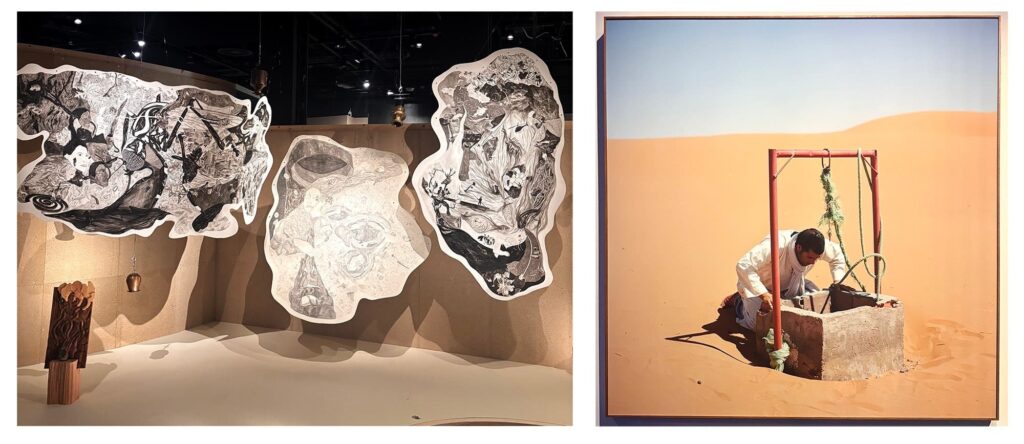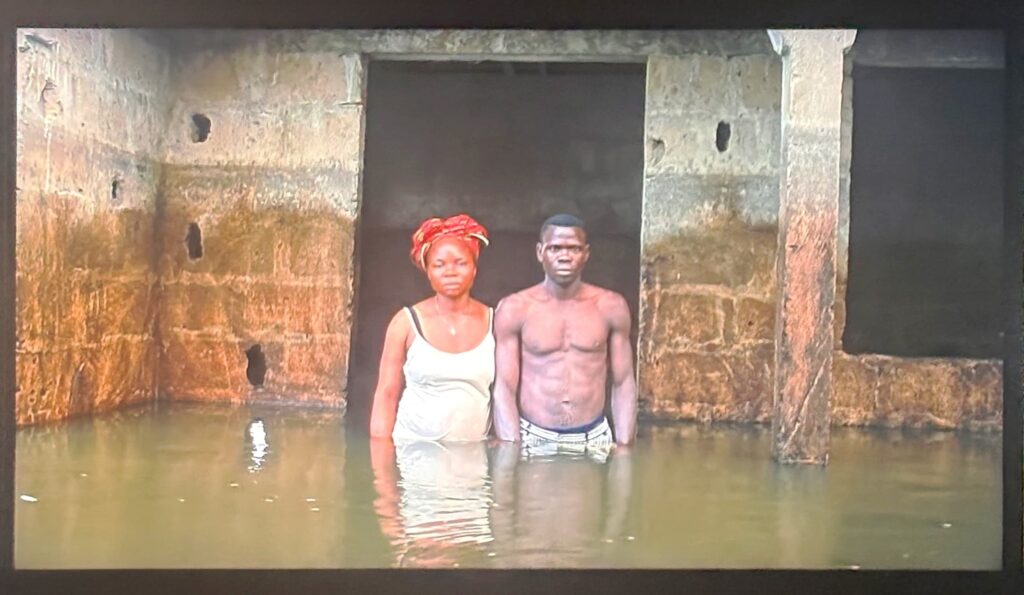Welcome to Carbon Brief’s DeBriefed.
An essential guide to the week’s key developments relating to climate change.
Trump to overturn ‘endangerment finding’
EPA OVERTURNING: The Trump administration announced its plan to overturn the 2009 finding that has been the “central basis” for US action to regulate greenhouse gas emissions, the Associated Press reported. A new Environmental Protection Agency proposal would rescind the “endangerment finding”, which determined that carbon dioxide and other greenhouse gases endanger public health and welfare, according to the newswire. If the finding is repealed, it would “erase current limits” on greenhouse gas pollution from cars, factories and power plants, AP said.
‘MISLEADING’ REPORT: The proposal is supported by a new Department of Energy report that uses “misleading and inaccurate” statements to argue that climate science has “overstated” the risks of a warming planet, Politico reported. The report, which also argues that climate science is “underestimating” the societal benefits of burning fossil fuels, was written by five scientists who “are known” for “denying accepted climate science”, the outlet added.
‘WINDMILL DISGRACE’: Wind development on federal lands and waters may be halted by the Trump administration, Bloomberg reported. Interior secretary Doug Burgum ordered a comprehensive review of the agency’s approval process, it said. According to Renewable Energy News, the department said more than 3.5m acres offshore were designated as “wind energy areas” by the last administration and that “terminating” these areas is “safeguarding” local environments and economies from “unchecked development”. This followed from Trump’s recent comment that “windmills are a disgrace”, the publication added.
Floods and heatwaves
SEVERE FLOODING: Torrential rains triggered a devastating flood in northern Nigeria, leaving at least 23 people dead, Deutsche Welle reported. The flooding has displaced 5,560 people and left dozens injured, according to the National Emergency Management Agency. More than 200 people have been killed in floods in Nigeria since the start of the rainy season in May this year, according to DW. The outlet reported that scientists have said climate change is fuelling many of these extreme weather occurrences.
BEIJING RAINS: China faced “another deadly rainy season” after 60 people were killed following days of torrential rain in Northern Beijing, reported Reuters. The outlet said climate change has made extreme weather “more frequent and intense”. Elsewhere, floodwaters from the Indus and Chenab rivers have “inundated” more than a dozen villages across Pakistan’s Punjab province, said India’s Tribune.
RECORD TEMPERATURE: Japan recorded its hottest day on record as temperatures reached 41.2C in southwest Tokyo, Al Jazeera reported. There were 16 heat-related deaths and more than 10,800 people were hospitalised with heatstroke last week, the outlet said. Meanwhile, the Iraqi government issued an official holiday in seven of its provinces as temperatures topped 50C, said Gulf News.
‘MILLIONS’ INSIDE: Temperatures soaring in the US have led to “millions” of Americans being warned to stay inside as some areas reach 48.8C, noted Newsweek. Heat warnings and advisories have been issued by the National Weather Service, according to the outlet.
- ENERGY PLEDGE: The European Union has pledged to buy $750bn of energy from the US in exchange for a lower tariff rate under its trade deal with Trump. “Significant purchases” of US oil, liquified natural gas and nuclear fuel to replace Russian fossil fuels are included in the deal, CNBC reported. The Financial Times quoted energy experts saying the deal is a “pie in the sky” given that “US fossil fuel supplies [in 2024] to the bloc accounted for just $75bn”.
- COP30 COSTS: The UN held an “urgent meeting” over “sky-high” accommodation costs ahead of the COP30 climate summit in Brazil, Reuters reported. Meanwhile, the last US climate negotiators have been fired by the Trump administration, leaving the nation with “no official presence” at the summit, said CNN.
- ‘MELTING RAPIDLY’: Glaciers in Turkey’s southeast are melting rapidly due to rising global temperatures “amid human-caused climate change”, Al Jazeera reported.
- ‘SEWAGE CRISIS’: The US and Mexico have signed a deal to end the Tijuana “sewage crisis”, committing to update outdated wastewater infrastructure to handle higher flows triggered by worse flooding, said Inside Climate News.
- RENEWABLE ENERGY: Australia’s government has pledged to “substantially increase” its renewable energy underwriting scheme following concerns the nation will struggle to meet its 2030 power target, noted the Guardian. Meanwhile, New Zealand’s government has voted to resume gas and oil drilling despite an “outcry” from the opposition and environmental groups, reported the New Zealand Herald.
- ‘UNHELPFUL TUSSEL’: UN climate chief Simon Stiell paid a visit to Australia and urged the nation and Turkey to resolve their “long-running tussle” over who will host the COP31 summit, calling the delay “unhelpful and unnecessary”, Reuters reported.
66.8 million
The hectares of intact tropical forest that overlaps with oil blocks in the Democratic Republic of Congo, according to Earth Insight.
- Climate change could make ‘droughts’ for wind power 15% longer | Carbon Brief
- A study of urban construction workers in Taiwan found that heat stress imposes “substantial economic burden” and results in productivity losses in the range of 29-41% | Nature Cities
- Drought will increasingly contribute to the collapse of many bird species that live in highly arid regions of the US | Biological Conservation
(For more, see Carbon Brief’s in-depth daily summaries of the top climate news stories on Monday, Tuesday, Wednesday, Thursday and Friday.)
New analysis by Carbon Brief this week revealed that 2025 is on track to be the second or third hottest year on record. The chart above draws on data from five different research groups that report global surface temperature records to illustrate how 2025 saw the second-hottest first half of the year on record.
‘Thirst’ exhibition maps the water crisis
This week, Carbon Brief visits a London exhibition exploring the world’s worsening water crisis.
Intricate ink drawings on cotton paper explore interconnected issues in Nepal.
Global warming has melted glaciers in the region, causing flooding and infectious diseases, displacing human and non-human life.
Yet, through his drawings, Nepalese artist Karan Shrestha has created a mosaic of the Himalayan region that shows water as a signifier of extreme weather and a life-giving source to be shared.

His piece, “Water-giver, memory-keeper and the shifting forces”, is displayed at the Wellcome Collection for its “Thirst: In Search of Freshwater” exhibition.
Brought together by Wellcome curator and lecturer Janice Li, it features 125 objects that showcase the impact of climate change on water and its role in shaping health and ecosystems.
Li’s research into the etymology of “thirst” unravelled a global interpretation of water, reflecting the exhibition’s geographical breadth. She told Carbon Brief:
“Humans have faced really brutal and critical environmental crises and have, through a really deep innate knowledge of their own specific land, been able to devise monumental infrastructure to combat the crises they face.”
Just before Shrestha’s art in the exhibition are photographs taken by M’hammed Kilito.
In one picture, Kilito’s guide, Mustapha, looks into a dried-up well in a Moroccan oasis.
Climate change and human activities have resulted in the loss of two-thirds of oases in the country, according to information displayed at the exhibition.
Speaking about the photograph, Kilito told the Guardian that it looked like Mustapha was “praying for the return of something essential: water”.
Water adopts multiple faces in the exhibition: a vital yet scarce resource in certain pieces, a spiritual entity in others – and a destructive force.
Nothing makes the latter as clear as “Deluge” by photojournalist Gideon Mendel. Five screens display footage of the aftermath of severe floods around the world, captured by Mendel over 17 years.

Li told Carbon Brief:
“[Gideon] told me that, in the last two years, there’s always been a flood of that magnitude happening somewhere. He didn’t imagine that one day it would get to a point where he would have to choose which one to go to.”
Next to “Deluge” is a dome-like space where visitors can sit on bean bags and listen to glaciers melting in the Himalayas.
Though the exhibition confronts global water challenges, Li hopes it also reminds visitors of the resource’s beauty:
“Quite a few people told me they sit in the listening room for half an hour, really enjoying themselves and then guilt hits them because they’ve forgotten they’re listening to melting ice. But, this is the beauty of art, and a lot of beauty has come out of decay, destruction and deterioration because it also, sometimes, signals rebirth.”
YAK HERDERS STRUGGLE: The Associated Press featured the stories of yak herders in India’s Himalayan mountains as climate change threatens their way of life.
PILOT ANXIETY: A Guardian documentary followed two airline pilots grappling with the climate impacts of their jobs.
‘IS DECARBONISATION DEAD?’: New York Times columnist Ezra Klein invited climate experts onto his podcast to discuss the future of renewable energy in the US.
DeBriefed is edited by Daisy Dunne. Please send any tips or feedback to [email protected].
This is an online version of Carbon Brief’s weekly DeBriefed email newsletter. Subscribe for free here.
Great Job Svetlana Onye & the Team @ Carbon Brief Source link for sharing this story.




